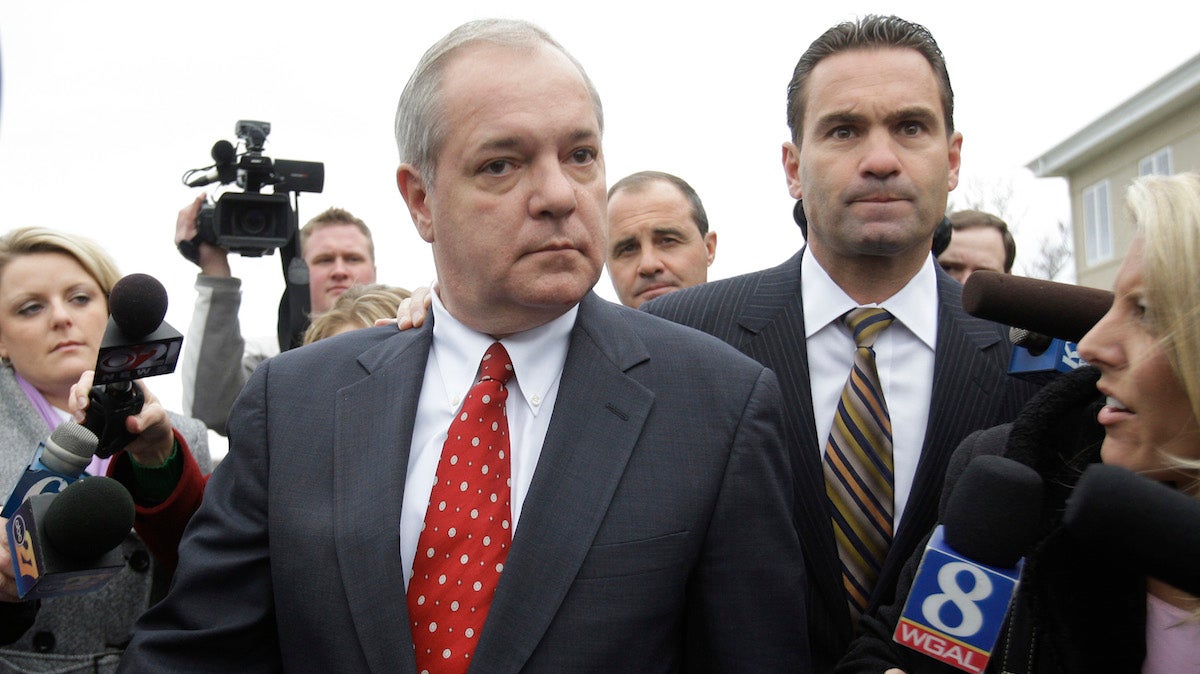Does convicted former Pa. House Speaker owe the state $1 million or not?

FILE - In this Nov. 13
Does a convicted former Pennsylvania House Speaker from Philadelphia owe the state $1 million… or not?
On Thursday, the Pennsylvania Supreme Court granted former Republican state Rep. John Perzel a new sentencing hearing where a Superior Court panel will take up that question in light of another case decided last fall in favor of Mike Veon, a former Democratic lawmaker.
In 2011, Perzel pleaded guilty to public corruption charges for his role in the so-called “computergate” scandal. The scheme involved using millions of dollars of state resources for GOP campaign activities.
Perzel has already served two years in state prison, but he’s appealing his court-ordered restitution, arguing that the Commonwealth is not a “victim” under the Pennsylvania criminal code.
Duquesne Law School Professor Bruce Ledewitz said Veon’s case, decided by the high court last fall, will likely help him out.
“The Supreme Court held in the Veon case that to be a direct victim, you must be a human being and for purposes of restitution, as a direct victim, only human beings who are the victims of crime can receive restitution,” Ledewitz said.
Veon was convicted of misusing taxpayer money through a nonprofit organization in Beaver County in 2012, but last November, the Supreme Court ruled that a county judge had erred when he ordered the former lawkmaker to pay $135,000 in restitution to the state’s Department of Economic and Community Development.
In the opinion, Supreme Court Justice John Wecht wrote that state law “envisages ‘victims’ as ‘persons’ commonly understood,” such as individuals who have suffered injury or death or the children, family members or legal guardians of those individuals.
“Every relevant noun unequivocally describes a human being, not a government agency, and nowhere else is there a relevant definition that persuades us to broaden the common understanding of these words,” Wecht wrote. “There can be no serious doubt that DCED, the agency designated to receive the restitution ordered in this case, does not qualify as a direct victim.”
Veon’s attorney is also working for Perzel to make the same case.
But is it fair for politicians to public resources for political gain and get out of paying back?
Ledewitz pointed out the court has something to say about that, too.
“What’s interesting about this is Justice Wecht, who wrote the opinion in Veon, makes it clear that he does not agree in terms of policy, ” he said. “And he invites the General Assembly to return to the issue and rewrite the definition in the statute.”
“It cannot be denied that, in this case, public funds were diverted to inappropriate purposes and thus were unavailable to be used in the ways intended, effectively victimizing the Commonwealth and its citizens,” Wecht wrote. “As a consequence of this ruling, these are monies that the Commonwealth will never recover.”
“Should the General Assembly wish to rectify this apparent gap in its restitution scheme, it may do so,” he added. “We, on the other hand, may not.”
WHYY is your source for fact-based, in-depth journalism and information. As a nonprofit organization, we rely on financial support from readers like you. Please give today.




